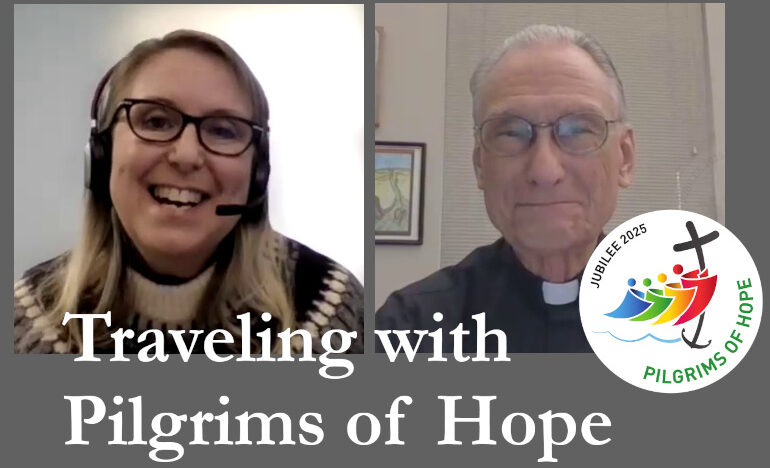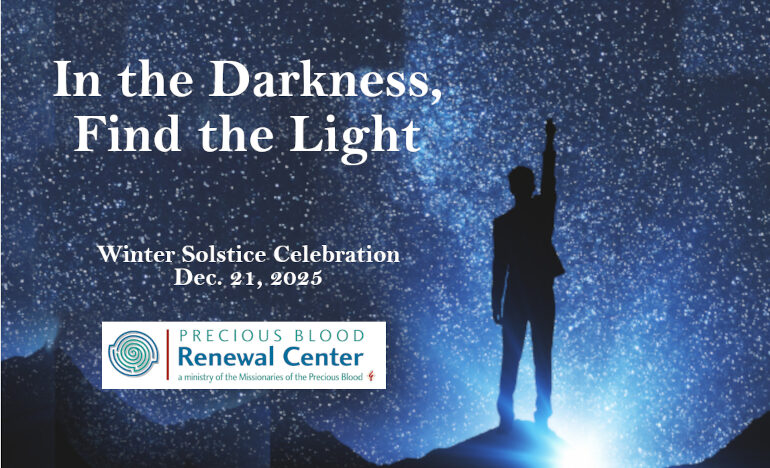Decisions, Decisions

An Assembling God’s Puzzle video
By Fr. Garry Richmeier, C.PP.S.
We make countless decisions every day, and most of them we make pretty quickly and automatically. Like when we choose which street to take to the store, or decide when is the best time to call a friend. But the bigger, more important decisions take more time and attention because their consequences will affect our lives in big ways. Like when deciding which job to take, or which person to marry.
When making these types of decisions, we often find ourselves torn between options. We can see our choices, but we are not sure which is the best choice, meaning which choice will turn out best for us. Our inability to clearly see the future results of any choice causes us uncertainty, and uncertainty is very uncomfortable for us human beings. So we can spend a lot of time, emotional energy, and suffering as we sometimes agonize over major decisions.
Some people even freeze in this type of situation, unable to make a choice. But making important decisions is a piece of life’s puzzle that all of us have to deal with.
Although there are no sure-fire ways to be sure we make all the best decisions, there are some “best practices” we can use to increase the probability that our choices will be better. Something that can help in this regard is to follow what I like to call the “Head, Heart, and Gut” rule, or the “Analyze, Feel, and Intuit” rule. This idea is based on the assumption that all aspects of the human being contribute to achieving wisdom, which is what enables us to make good choices. The “Head, Heart, and Gut” rule can be a guideline in helping someone bring all their human faculties to bear when facing difficult choices. We can talk about each of these “wisdom centers” separately.
When making decisions, we usually think of the role of the Head Center — the rational, logical, analytical part of us. This is what helps us identify the options we have in any situation and what the likely consequences will be with any choice we might make. Our past experiences are valuable guides in this. Every choice has consequences, and we need to be willing to accept the possible consequences of any choice. Otherwise, a different choice will be better for us. The Head Center is invaluable for this.
Some have the idea that we should rely on the Head Center primarily, or even solely, for our decision making. Often people say not to let your emotions get in the way of decisions. But as valuable as rationality and logic are, they can be cold, heartless task masters. For example, “Fight fire with fire” is piece of logic with which we can make choices. Using this logic alone can lead to revenge, war, and capital punishment, to name a few problematic consequences. Without the counter-balancing effect of the Heart Center, the Head Center can lead us to disaster.
The Heart Center brings into play human emotion when making decisions, including the all-important feeling of compassion. This aspect of wisdom takes into account the effects one’s choices have on others. The Heart Center asks questions like “Which choice brings about the greater good?” rather than automatically choosing the most expedient, cost-effective, logical option. Our culture tends to resist taking into account the Heart Center wisdom because it involves more time, work, research, and resources than simply going with the Head Center’s cut-and-dried options. It is “messier.” But it needs to be part of any wise decision.
Referring only to the Heart Center in decision-making can be harmful also. For example, the emotion of fear can paralyze a person and prevent making needed choices. The Head Center can help determine if the fear is real or imagined. Likewise, the feeling of caring for someone can turn into detrimental enabling and codependence if it is not informed by the logic of what is actually best for the loved one.
The Gut Center deals with “gut feelings,” or intuition. We humans gather information in ways that are more subtle than rational thoughts or emotions. For example, we communicate with body language, even if we aren’t conscious that we are doing it.
Describing what we know through intuition is difficult, so our culture tends to mistrust this source of wisdom. But this is the level on which the Spirit probably operates the most with us. It can give us that unexplainable gut feeling when something just isn’t right, or when it is just right.
As with the Head Center and the Heart Center, it isn’t good to rely only on intuition in making decisions. But it can be a good warning sign that we might need to explore a particular choice more in detail.
Again, there are no fool-proof ways to always make the best choices. But if we tap into all of our wisdom centers, the head, the heart, and the gut, it is our best shot at making the best (and most loving) decision possible.
All of the videos in this series can be found here: Assembly God’s Puzzle.
Never miss an article published on the Renewal Center website: Sign up to receive our newsletters.
[Fr. Garry Richmeier, a Precious Blood priest and spiritual director, holds a Master’s of Divinity Degree from St John’s University in Collegeville, Minnesota, and a Master’s of Counseling Psychology degree from the University of Missouri-Kansas City. He is a licensed professional counselor and a licensed marriage and family therapist.]
ID 334496229 | Decisions © AminaDesign | Dreamstime.com
We’d Like to Hear from You!
We’d like to know what you think about this article. Send us a comment using the form below. Do you have a suggestion? Is there something you want to learn more about? Send us a note.
Related

Pilgrims of Hope, Episode 11 Walking with Young People
In this episode of the Jubilee Year video series, “Traveling with Pilgrims of Hope,” we talk with Teri Iverson, the Vocation Ministry Coordinator for the Sisters of the Precious Blood in Dayton, Ohio, about the joy and hope she finds in working among young people.

Video: Winter Solstice Celebration 2025
The Winter Solstice is the longest night of the year and the earth lies fallow. We are drawn naturally into contemplation. At the Renewal Center, we mark the Winter Solstice with a time of slow, quiet reflection and fellowship.
Categories
Assembling God's Puzzle Coffee with Padre Cooking & Spirituality Encounters of the 4th Kind Family Matters Guided Meditations Reflections on the Eucharsitic Prayers Spiritual Resources Taize Prayers Teach Us to Pray The Contemplative Life Traveling with Pilgrims of Hope Uncategorized Videos When you need a little help
